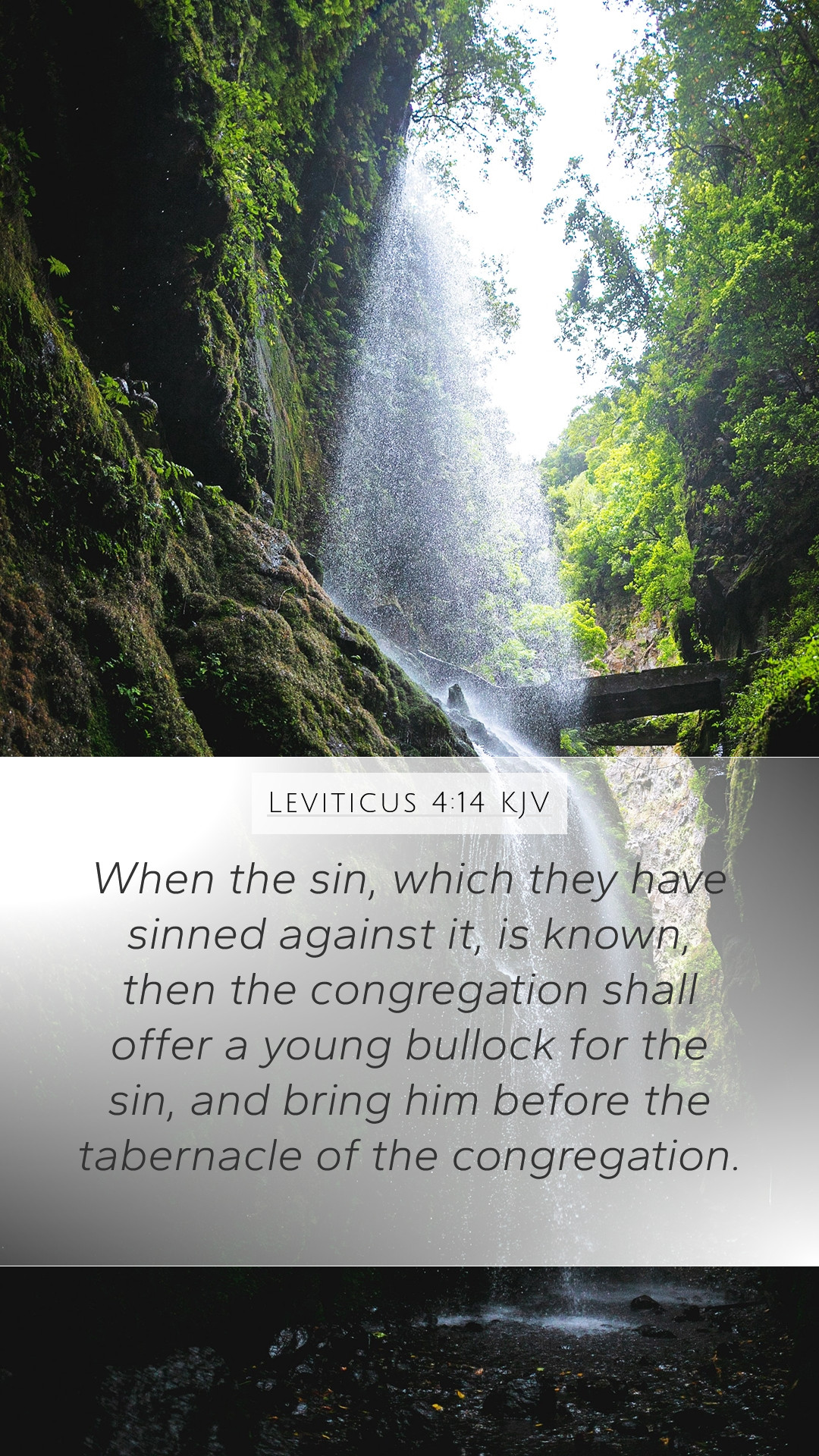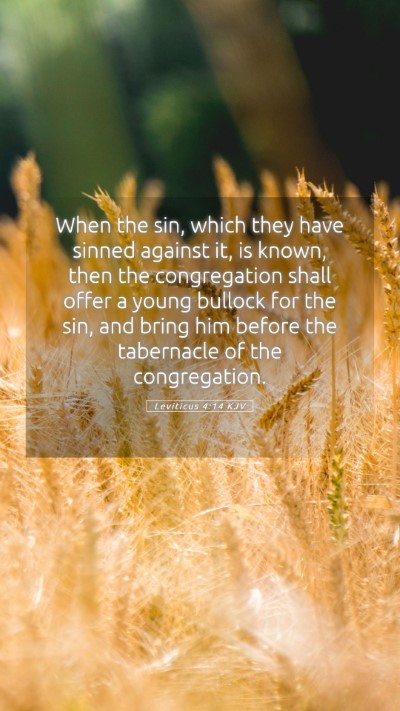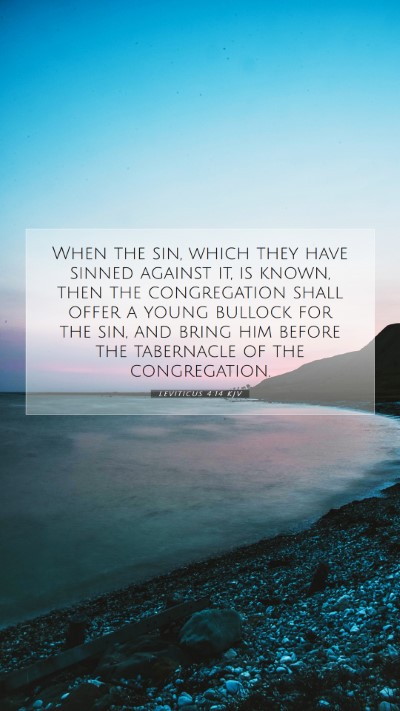Understanding Leviticus 4:14
Bible Verse: Leviticus 4:14
"And the elders of the congregation shall lay their hands upon the head of the goat before the Lord: and the goat shall bear upon him all their iniquities unto a land not inhabited: and he shall let go the goat in the wilderness."
Bible Verse Meaning and Interpretation
Leviticus 4:14 discusses the ritualistic process of atonement involving a goat, reflecting the heavy symbolism of sin and forgiveness in ancient Israelite culture. The passage emphasizes the collective responsibility of the congregation's elders when it comes to sin and the process of atonement.
Summary of Insights from Commentaries
-
Matthew Henry's Commentary:
Henry emphasizes the importance of the scapegoat in representing the idea of transferring sins away from the people and into the wilderness. This ritual signifies the removal of iniquity and the divine provision for forgiveness, showcasing God's mercy and willingness to absolve the people.
-
Albert Barnes' Commentary:
Barnes elaborates on the notion of corporate sin and how the elders had a significant role in leading the community in seeking atonement. The act of laying hands on the goat symbolizes identification with the sin, illustrating the concept of substitutionary atonement—a theme that recurs throughout scripture.
-
Adam Clarke's Commentary:
Clarke notes the wilderness as an uninhabited place where the sins are sent away, metaphorically suggesting that forgiveness allows one to start anew, separated from past transgressions. His analysis connects this practice to the broader biblical themes of redemption and restoration.
Key Themes and Concepts
-
Corporate Responsibility:
The elders represent the community, highlighting the shared accountability for sin within a group, which is an essential concept in understanding scripture.
-
Substitutionary Atonement:
This verse sets a precedent for the practice of atonement through substitution, a concept integral to the sacrificial system established in the Old Testament and later fulfilled in Christ.
-
Symbolism of the Wilderness:
Sending the goat into the wilderness symbolizes the complete removal of sin, indicating that once atoned for, those sins have no power over the people any longer.
Application of Leviticus 4:14 in Daily Life
This scripture teaches modern believers about the significance of confession and the communal nature of sin. Ensuring that we collectively acknowledge our failings can pave the way for healing and restoration within communities today.
Bible Study Insights
Incorporating Leviticus 4:14 into Bible study groups or online Bible study sessions can lead to rich discussions on repentance, the nature of sin, and the grace of God. Utilizing Bible study tools and resources can aid in unpacking such verses further.
Cross References
- Leviticus 16:10: Discusses the Day of Atonement and the role of the goat.
- Isaiah 53:6: Speaks of bearing our iniquities, which ties into the concept of vicarious sacrifice.
- Hebrews 9:26: Refers to Christ as the ultimate sacrifice for sin.
Conclusion
Leviticus 4:14 serves as a powerful reminder of the deep spiritual truths surrounding sin, repentance, and atonement. Its theological implications resonate throughout the Bible, making it essential for anyone seeking a thorough understanding of scripture and biblical exegesis.


